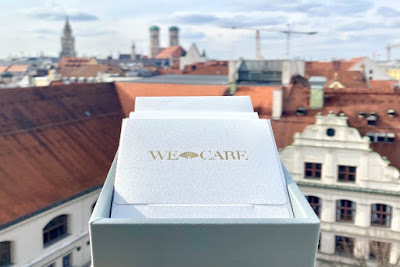Visa, the digital payments provider, has launched Visa Eco Benefits in Asia Pacific. Eco Benefits is a suite of sustainability-focused solutions that will help Visa cardholders across the region better understand the environmental impact of their day-to-day payments. They can calculate the carbon footprint generated by their Visa transactions, and access options for carbon offsetting or charitable donations from their bank’s website or app.
Banks in Asia Pacific that sign up for Eco Benefits will be able to offer these solutions to their Visa cardholders and meet a growing demand for sustainable financial services. According to a new Visa/YouGov survey*, 66% of consumers in Asia Pacific expect their bank to offer ecofriendly payment solutions. Over half (52%) would switch banks in order to access a product or service that helps them understand the carbon footprint of their spending.
“The majority (78%) of people in Asia Pacific said they are more likely to make more environmentally friendly purchases if they’re able to see their carbon footprint and take steps to change their spending habits,” said Kunal Chatterjee, Country Manager for Singapore and Brunei.
“Our bank and fintech partners across the region can now add these sustainability features to existing Visa cards. Eco Benefits is another way that Visa is expanding our network beyond payment transactions to deliver more insights to our partners and their customers.”
The following solutions are included in Visa Eco Benefits:
Carbon footprint calculator: insights powered by Verrency for cardholders to understand the estimated carbon footprint generated by their purchases
Carbon offsets: cardholders can elect to offset their carbon footprint from a range of specially curated projects in areas such as forestry and clean energy
Charitable contributions: donations to environmental organisations can be triggered when Visa cards are used
Card materials: physical payment cards made from sustainable materials
Personalised education: cardholders can access personalised tips and education on sustainable consumption
“Consumer household expenditure - the products and services we purchase every day - is a major contributor of global greenhouse gas emissions**,” said Jeroen van Son, global CEO of Verrency. “That gives us as consumers a phenomenal opportunity to address climate change by offsetting the carbon footprint of our day-to-day behaviour and start to live a carbon neutral life. Up until now, customers did not have any convenient tools to take decisive action to offset their carbon footprint. Verrency’s Carbon Action Index changes that. From now on, consumers can choose to live a carbon neutral life, just by using their Visa card as they do today.”
Visa Eco Benefits is a continuation of Visa’s global aspiration to be a climate positive company, using its products, services, data, network and brand to drive sustainable commerce and support the transition to a low-carbon economy. In 2021, Visa announced a pledge to reach net-zero emissions by 2040, 10 years ahead of the Paris Climate Agreement goal.
*All figures, unless otherwise stated, are from YouGov Singapore. Total sample size was 14,356 adults across 14 markets. Fieldwork was undertaken between 23 June – 5 July 2022. The survey was carried out online. The figures have been weighted and are representative of all adults (aged 18+) nationally in each of the respective markets. The figures have been weighted and are representative of all adults (aged 18+) nationally in each of the respective markets. The survey was conducted in the following markets: Vietnam, Thailand, Singapore, Philippines, Malaysia, New Zealand, Australia, mainland China, Indonesia, Hong Kong, India, Korea, Japan and Taiwan.
**Columbia Climate School, How Buying Stuff Drives Climate Change, December 2020.



